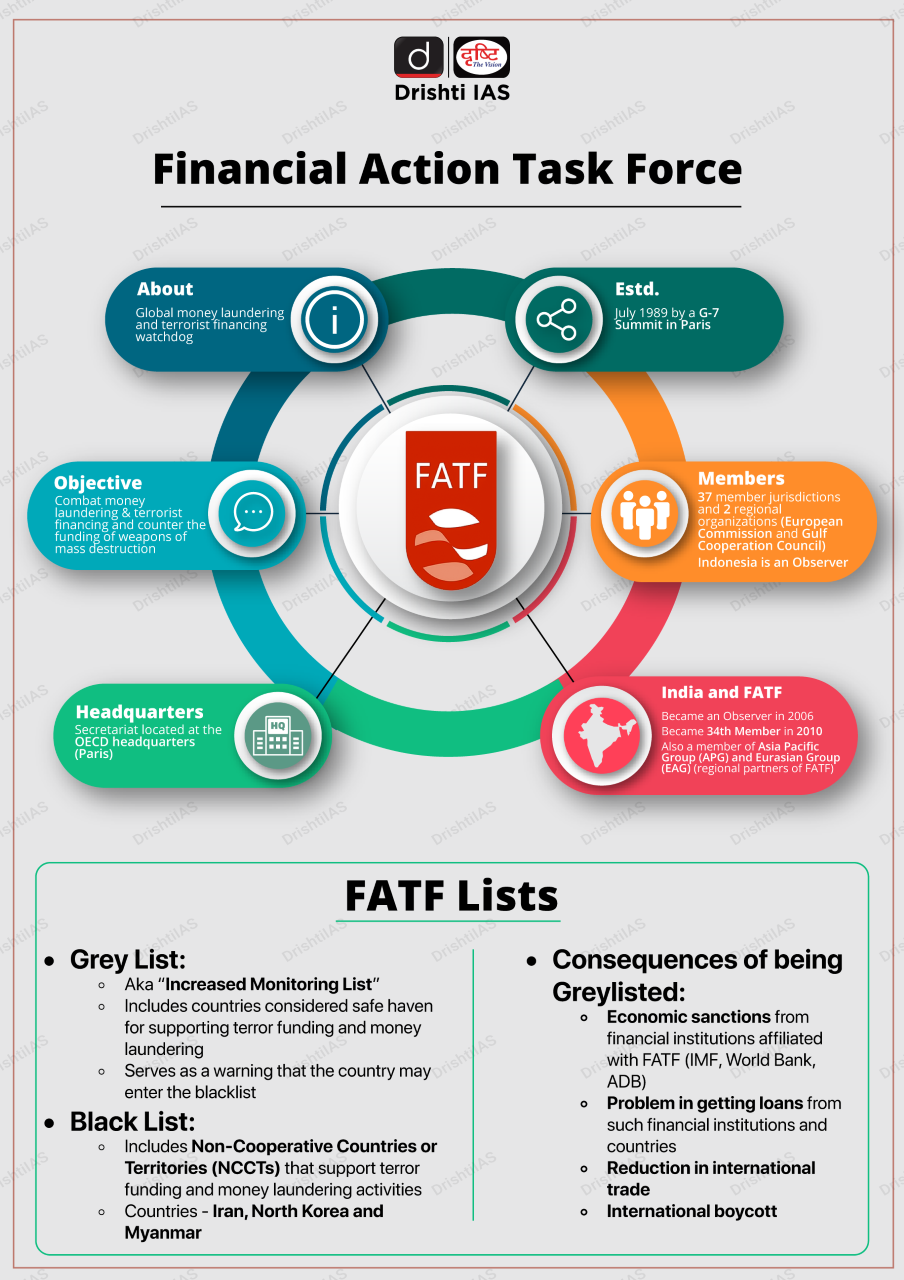Jammu & Kashmir
"FATF: Terror from ISIL and AQ-Linked Groups in J&K"
- 21 Sep 2024
- 3 min read
Why in News?
Recently, the Financial Action Task Force (FATF) released its Mutual Evaluation Report on India, highlighting the terrorism threats India facing, particularly from Islamic State of Iraq and the Levant (ISIL) and Al-Qaeda-linked groups active in and around Jammu and Kashmir.
Key Points
- Regional insurgencies in the Northeast and Left-Wing Extremist groups also pose terrorism risks, the report highlighted.
- While the country emphasizes prevention and disruption of terrorist financing, more effort is required to conclude prosecutions and convict terrorist financiers.
- FATF: FATF is the global money laundering and terrorist financing watchdog set up in 1989 out of a G-7 meeting of developed nations in Paris.
- Objective:
- Initially, its objective was to examine and develop measures to combat money laundering.
- After the 9/11 attacks on the US, the FATF in 2001 expanded its mandate to incorporate efforts to combat terrorist financing.
- In April 2012, it added efforts to counter the financing of proliferation of Weapons of Mass Destruction (WMD).
- Objective:
- FATF Recommendations:
- In April 1990, less than one year after its creation, the FATF issued a report containing a set of Forty Recommendations intended to provide a comprehensive plan of action needed to fight against money laundering.
- In 2004, the FATF published a Ninth Special Recommendations, further strengthening the agreed international standards for combating money laundering and terrorist financing - the 40+9 Recommendations.
- In 2012, the FATF revised its recommendations and expanded them to deal with new threats such as the financing of proliferation of WMD.
- Over 200 jurisdictions around the world have committed to the FATF Recommendations through the global network of nine FATF-Style Regional Bodies (FSRBs) and FATF memberships.
FATF’s Recommendations
- Pending Trials: India needs to expedite the conclusion of pending money laundering trials and improve its handling of crimes like human trafficking and drug-related offences.
- Targeted financial sanctions: India must improve its framework to ensure the freezing of funds and assets without delay and streamline communication regarding sanctions.
- Domestic Politically Exposed Persons (PEPs): India needs to define domestic PEPs under its anti-money laundering laws and implement risk-based enhanced measures for them.





